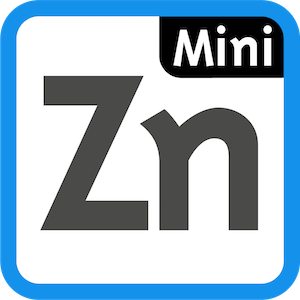The python package that allows you to access all of MiniZinc's functionalities directly from Python.
Explore the docs »
Report Bug
·
Request Feature
MiniZinc Python provides an interface from Python to the MiniZinc driver. The most important goal of this project are to allow easy access to MiniZinc using native Python structures. This will allow you to more easily make scripts to run MiniZinc, but will also allow the integration of MiniZinc models within bigger (Python) projects. This module also aims to expose an interface for meta-search. For problems that are hard to solve, meta-search can provide solutions to reach more or better solutions quickly.
To get a MiniZinc Python up and running follow these simple steps.
MiniZinc Python can be installed by running pip install minizinc. It
requires MiniZinc 2.6+ and
Python 3.8+ to be installed on the system. MiniZinc
python expects the minizinc executable to be available on the executable path,
the $PATH environmental variable, or in a default installation location.
For more information, please refer to the Documentation
Once all prerequisites and MiniZinc Python are installed, a minizinc module
will be available in Python. The following Python code shows how to run a
typical MiniZinc model.
import minizinc
# Create a MiniZinc model
model = minizinc.Model()
model.add_string("""
var -100..100: x;
int: a; int: b; int: c;
constraint a*(x*x) + b*x = c;
solve satisfy;
""")
# Transform Model into a instance
gecode = minizinc.Solver.lookup("gecode")
inst = minizinc.Instance(gecode, model)
inst["a"] = 1
inst["b"] = 4
inst["c"] = 0
# Solve the instance
result = inst.solve(all_solutions=True)
for i in range(len(result)):
print("x = {}".format(result[i, "x"]))For more examples, please refer to the Documentation
MiniZinc Python uses uv to manage its
dependencies. To install the development dependencies run uv sync --dev.
Although continuous integration will test any code, it can be convenient to run the tests locally. The following commands can be used to test the MiniZinc Python package.
- We use PyTest to run a suite of unit tests. You can run these tests by executing:
uv run pytest- We use Ruff to test against a range of Python style and performance guidelines. You can run the general linting using:
uv run ruff checkYou can format the codebase to be compatible using:
uv run ruff format(The continous integration will test that the code is correctly formatted using
the --check flag.)
- We use Mypy to check the type correctness of the codebase (for as far as possible). You can run the type checking using:
uv run mypy .See the open issues for a list of proposed features (and known issues).
Contributions are what make the open source community such an amazing place to be learn, inspire, and create. Any contributions you make are greatly appreciated.
- Fork the Project
- Create your Feature Branch (
git checkout -b feature/AmazingFeature) - Commit your Changes (
git commit -m 'Add some AmazingFeature') - Push to the Branch (
git push origin feature/AmazingFeature) - Open a Pull Request
Distributed under the Mozilla Public License Version 2.0. See LICENSE for more information.
👤 Jip J. Dekker
- Twitter: @DekkerOne
- Github: Dekker1
🏛 MiniZinc
- Website: https://www.minizinc.org/
